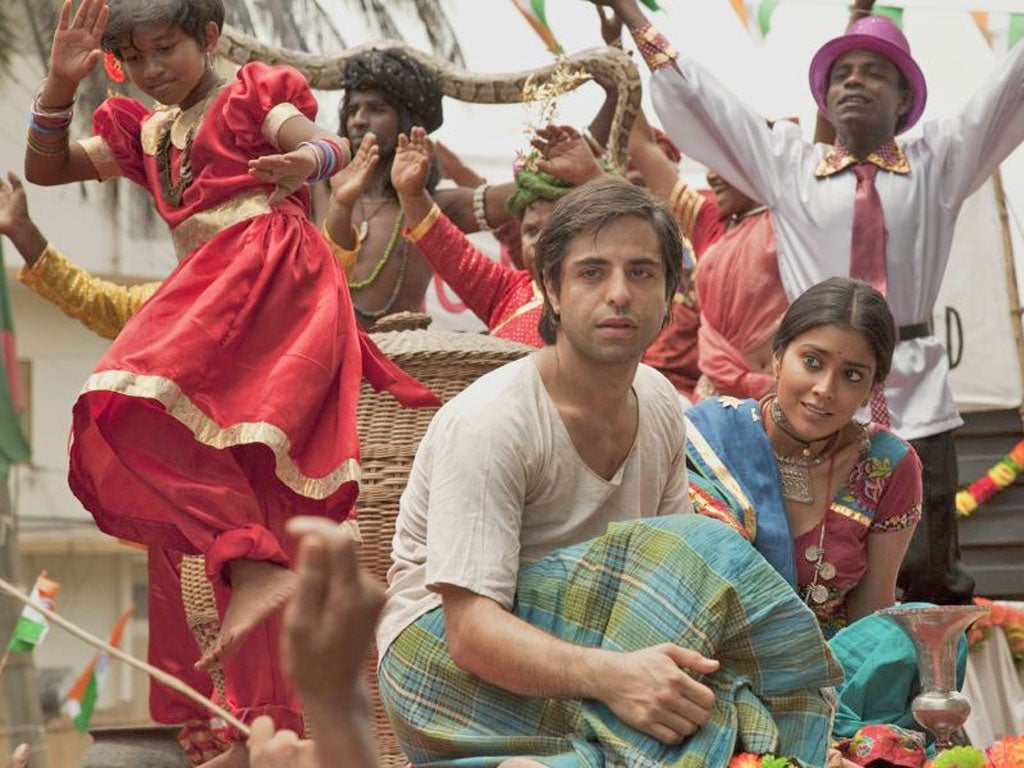First Night: Midnight's Children, Toronto Film Festival
Easy drama doesn't work as an allegory of India and Pakistan's complex relationship

The adaptation of Salman Rushdie's 1981 Booker Prize-winning novel Midnight's Children was shrouded in mystery during production.
The cast had secrecy clauses written into their contracts and when shooting began in February 2011, in Colombo, Sri Lanka, the film was being made under the pseudonym Winds of Change.
Sri Lanka was chosen as it was considered too risky to film the tale in India or Pakistan, where it is actually set.
And Rushdie was certainly not the only controversial person attached to the project.
Canadian director Deepa Mehta had previously created a stir in India when Hindu fundamentalists called for her film Fire to be banned because of its lesbian protagonists; upon release cinemas showing the film in Delhi and Mumbai were fire-bombed and attacked. Her follow-up film, Water, was shut down for four years after a 2,000-strong group of protesters rampaged through the set.
Pakistan is a tough place to film in any circumstances and impossible for any film with The Satanic Verses author attached. But Sri Lanka, where Mehta eventually ended up filming Water, was not exactly the soft option. In 1997, the BBC tried to film a five-part television version of Midnight's Children there, but the government withdrew permission after protests from Muslims.
Audiences watching Midnight's Children the movie, unveiled at the Toronto Film Festival, will wonder what all the fuss is about. The plot, about children born in the hour after partition in 1947 who have supernatural powers, avoids controversy and shies away from commenting on the political and religious turmoil in the region. It is advisable to know a potted history of the region before watching the film, as there is little in the way of explanation as the story whizzes through the decades.
Rushdie was charged with adapting the novel himself, and the main structural change is the inclusion of a third-person narrator voiced by the author himself. It's a device that creates as many problems than it solves.
Initially his words provide a poetic lyricism, introducing big-nosed Saleem (Satya Bhabha) and his Sinai family. Their various shenanigans are described in lush detail, with myriad weddings and divorces and an electric soundtrack, and it all feels very romantic.
But by the time the narrator describes how a nurse (Seema Biswas), in a foolish act of love and political defiance, exchanges a rich child with an orphaned pauper, the narrative device has become clunky. The narrator then disappears for huge chunks of the movie, only reappearing to explain narrative jumps and linking the episodic storytelling.

Watch Apple TV+ free for 7 days
New subscribers only. £8.99/mo. after free trial. Plan auto-renews until cancelled

Watch Apple TV+ free for 7 days
New subscribers only. £8.99/mo. after free trial. Plan auto-renews until cancelled
Mehta's strengths lie in depicting family drama and emotional turmoil. The scenes at home have far more impact than those depicting war. The best involve Saleem with his "father" and "sister". The director also manages the tricky use of the metaphysical extremely well.
Less convincing is the central bond between the two swapped infants Saleem and Shiva (Siddharth). Shiva is never given enough screen time to make him a fully rounded character. He's a bit of a brute and the "nature" versus "nurture" side of the story is underplayed.
The juxtaposition between the two characters is designed for easy drama and is never complex enough to work as an allegory of the complex relationship between India and Pakistan.
Subscribe to Independent Premium to bookmark this article
Want to bookmark your favourite articles and stories to read or reference later? Start your Independent Premium subscription today.

Join our commenting forum
Join thought-provoking conversations, follow other Independent readers and see their replies